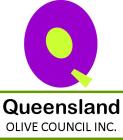 The Queensland Olive Council is taking an active stance against water security in the Olive Industry. Queensland Olive Council’s CEO, Amanda Bailey, says “Our Growers and Producers have endured enough. It is time that a serious stance is taken on this issue and in Queensland producers here have certainly felt the impacts of the drought over many years now and understand this is the leading issue currently facing the entire Australian Olive Industry”.
The Queensland Olive Council is taking an active stance against water security in the Olive Industry. Queensland Olive Council’s CEO, Amanda Bailey, says “Our Growers and Producers have endured enough. It is time that a serious stance is taken on this issue and in Queensland producers here have certainly felt the impacts of the drought over many years now and understand this is the leading issue currently facing the entire Australian Olive Industry”.Olive trees are hardy and can survive throughout drought periods and general weather extremes. Sufficient, reliable and sustainable water availability is the primary resource mandatory in achieving a commercially viable olive crop and has a negative impact on the capacity and volume of production and exports of Australian olive oil and table olives to established markets worldwide. The accepted industry threshold of additional water resource needed is from 3ML up to 12ML/ha per annum to achieve commercially viable cropping in olives.
The Australian Olive Industry has over 10 million olive trees planted in commercial orchards with an estimated 25% of these trees in production during these difficult times of scarce water availability. Water availability for affordable horticultural irrigation purposes is key to remaining viable in this industry.
The Australian Olive Industry must resolve the issue of water security if this industry is to sustain the development of key stakeholders in all viable growing regions throughout Australia and retain and develop domestic and export markets. The impinging issue of water security has significantly impacted upon and contributed to a decline and lack of olive oil and table olive production which the industry has experienced for over a decade and production will continue to decline unless water security is established and maintained.
We, therefore, request the Government to consider new water reforms and to consider implementing harvesting and storing floodwaters in North Queensland and other high volume rainfall areas within the State.
Commercially viable volumes of floodwater harvested in surplus flow periods stored and channeled to provide relief in already over-committed irrigation schemes and river systems, would offer affordable irrigation water that is reliably available for agricultural and horticultural irrigation schemes for generations to come – this would no doubt be considered a great legacy of resource management, food provision, regional employment, and viable export opportunities.
The Queensland Olive Council is leading an industry discussion to assess the current impacts currently experienced by olive producers and to investigate ways to help or assist with lobbying for better water security for the Australian Olive Industry.
Link to Survey: Australian Olive Industry – Water Security
QR CODE: 
More about CEO Amanda Bailey talking about Queensland Olives in the Drought


Some of us do what we can with rainfall and nothing else. An average rainfall of 680mm is a thing of the past. More like 550mm these days. From January to March we had just 48.5mm. 2018 was 43.5mm. There is no irrigation water anywhere near here. Welcome to the new climate, but thank goodness there’s no such thing as global warming. Lucky our arsa is “cool climate”.
LikeLike